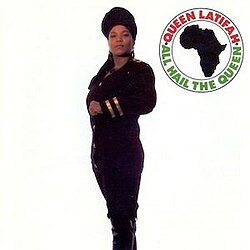Fashion Forward: Taylor Swift’s Style Evolution and Influence on Global Trends
By koalafriend
When it comes to women who consistently reinvent themselves with impeccable style, Taylor Swift stands out as a true fashion chameleon. Since bursting onto the scene in the late 2000s, Taylor’s style evolution has not just reflected her music eras—it has actively shaped global fashion trends. From her country-girl roots to ultra-glam pop icon moments and vintage-inspired sophistication, Swift’s wardrobe journey is the ultimate style playbook for fans and fashionistas alike.
From Sweet Country Star to Chic Pop Icon
Taylor Swift’s first major style phase was unmistakably rooted in her country music beginnings. Think boots, sundresses, and dreamy, curly hair that screamed Americana glam. Early red carpet appearances paired classic Southern charm with young girl-next-door appeal, making Taylor an instant darling of the fashion world for her approachable yet polished looks.
But as her music transitioned to a more pop-centric sound around the Red and 1989 eras, so did her style. Gone were the cowboy boots; in came structured crop tops, high-waisted shorts, and edgy sunglasses. This period marked Taylor as a style icon who clearly understood the power of a well-curated wardrobe. Street style snaps from this time heavily influenced the resurgence of 90s nostalgia, including chokers, slip dresses, and bold red lips.
Fearless Fashion Risk-Taker: The Reputation and Lover Eras
Taylor’s Reputation era introduced fans to a darker, more daring side of her fashion identity. Leather jackets, glittering bodysuits, fishnet stockings, and bold snake motifs became Swift’s fresh aesthetic, perfectly echoing her message of reclaiming power and rewriting her narrative. She wasn’t just dressing to impress—Taylor was commanding attention, inspiring a wave of edgier streetwear looks among young fans globally.
Then came the Lover era, which balanced that boldness with whimsy and pastel perfection. Taylor’s wardrobe softened again into dreamy tulle skirts, vibrant prints, and heart-themed accessories that instantly became viral Instagram moments. The pastel trend skyrocketed, influencing everything from runway collections to everyday fashion staples.
Ever-Evolving Red Carpet Royalty
What truly sets Taylor Swift apart in the fashion world is her ability to serve consistent red carpet looks that are both aspirational and trend-setting. Whether it’s the glittering Elie Saab gowns, sleek Versace silhouettes, or retro-inspired Oscar de la Renta ensembles, Taylor knows how to make a statement. Her red carpet moments often echo her album concepts, reinforcing how intertwined her music and fashion sensibilities really are.
Her iconic Met Gala appearances have cemented her status as a global style influencer. From the sparkling “Midnight Cowboy” look in 2019 to the whimsical, vintage Vogue-inspired ensemble in 2022, Taylor effortlessly blends high fashion with personal storytelling. Designers covet her as their muse, and fans eagerly replicate her looks on social media, fueling viral style trends and boosting brands she wears overnight.
Global Influence and Style Impact
Taylor’s style influence stretches far beyond the U.S. She has become a muse for international fashion weeks, appearing in street style galleries from Milan to Paris with looks that spark instant trend waves. Celebrities and influencers worldwide emulate her easy transitions—from casual daytime chic to ultra-glam evening wear.
Moreover, Swift’s collaborations with top designers and beauty brands amplify her influence. When Taylor announces a partnership or debuts a new look, the fashion world takes notice, often resulting in sold-out collections and trending hashtags within hours. Her ability to shift seamlessly across genres—from vintage-inspired cardigans to futuristic metallics—makes her a dynamic force driving modern fashion diversity.
What’s Next for Taylor Swift’s Style?
As Taylor gears up for the release of her latest album and a highly anticipated world tour, fans are eagerly watching to see how her style will evolve next. If history is any indication, Swift will continue to set trends, inspire countless fashion moments, and influence global style calendars with each new chapter in her career.
Whether you’re a die-hard Swiftie or a casual fan, one thing is clear: Taylor Swift isn’t just a musical powerhouse—she is a fashion icon whose evolving style continues to shape the trends and conversations in wardrobes worldwide.
Stay tuned, because when it comes to Taylor Swift, the style evolution is always fashion forward.
Keywords: Taylor Swift style evolution, Taylor Swift fashion trends, Taylor Swift red carpet looks, Taylor Swift fashion influence, global fashion trends, celebrity style inspiration, pop star fashion, Taylor Swift fashion 2024


